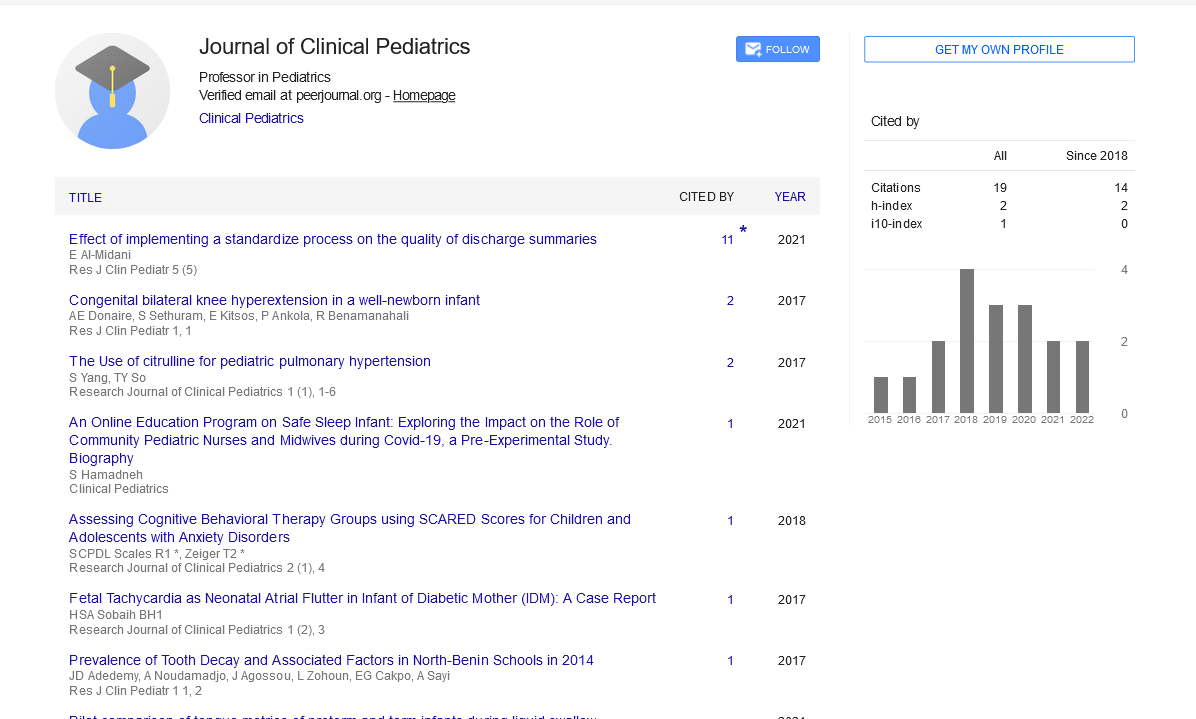Editorial, Res J Clin Pediatr Vol: 9 Issue: 1
Nutritional Deficiencies in Early Childhood and Their Long-Term Impact
Ananya Iyer*
Department of Pediatrics, AIIMS, New Delhi, India
- *Corresponding Author:
- Ananya Iyer
Department of Pediatrics, AIIMS, New Delhi, India
E-mail: ananya.iyer@aiims.edu
Received: 01-March-2025, Manuscript No RJCP-25-169428; Editor assigned: 4-March-2025, Pre-QC No. RJCP-25-169428 (PQ); Reviewed: 20-March-2025, QC No RJCP-25-169428; Revised: 26-March-2025, Manuscript No. RJCP-25- 169428 (R); Published: 30-March-2025, DOI: 10.4172/rjcp.1000162
Citation: Ananya I (2025) Nutritional Deficiencies in Early Childhood and Their Long-Term Impact. Res J Clin Pediatr 14:162
Introduction
Nutritional status during early childhood significantly influences health trajectories throughout life. Malnutrition, especially micronutrient deficiencies, remains a prevalent issue in developing nations like India. The first 1000 days of life are particularly critical for growth and neurodevelopment.
Prevalence and Risk Factors in India
India bears a high burden of childhood malnutrition. According to NFHS-5, 35.5% of children under five are stunted, and 19.3% are wasted. Factors such as poor maternal health, inadequate breastfeeding, and delayed complementary feeding contribute to this [1]. Low-income families often lack access to balanced diets, leading to deficiencies in iron, vitamin A, and zinc [2].
Additionally, regional disparities in nutrition status reflect sociocultural and economic inequities. In rural and tribal populations, rates of undernutrition are even higher [3]. Parental illiteracy, food insecurity, and lack of healthcare access further exacerbate these issues [4].
Long-Term Health Consequences
The consequences of early-life nutritional deficiencies extend beyond childhood. Stunted children often experience impaired cognitive development and lower school performance [5]. Iron deficiency anemia has been linked with attention deficits and reduced IQ.
Moreover, malnutrition predisposes children to chronic diseases in adulthood, such as diabetes and cardiovascular disorders, through mechanisms like metabolic programming [1]. Therefore, early identification and intervention are crucial.
 Spanish
Spanish  Chinese
Chinese  Russian
Russian  German
German  French
French  Japanese
Japanese  Portuguese
Portuguese  Hindi
Hindi 
